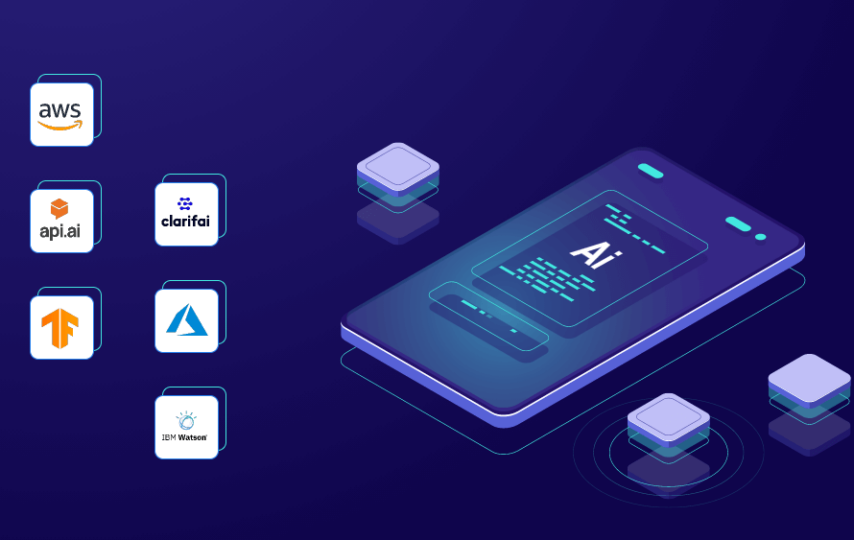The acronym AI often refers to systems or robots that have been programmed to act intelligently. In its execution of tasks and development through analysis of collected data, artificial intelligence mimics the human intellect. Specific uses of artificial intelligence include expert systems, NLP, speech recognition, and machine vision.
Artificial intelligence (AI) has emerged as a game-changing tool for modern enterprises and startups, particularly in mobile app development, in recent years.
What Is Mobile App Development? Why Are Mobile Apps Important for Startups?
Creating an app that runs well on mobile platforms like Android and iOS is the goal of mobile app development. The app may come preloaded on the device, be available for download from an app store, or be accessible via a mobile device’s web browser. You can take the help of Mobile app development company in Dubai for best services, if you are looking for the app development services.
These are examples of languages used in software development: programming and markup.
- Java -Swift
- C#
- HTML5
When creating mobile apps for new businesses, several details must be considered. To create an app that lives up to its users’ expectations, it’s crucial to grasp who they are, what they want, and how they engage with digital gadgets.
Every business aspires to expand its clientele, name recognition, product offerings, and revenue. All of this is feasible with the help of a smartphone app that helps businesses find new avenues for expansion and income.
Nestable is an expert mobile app development firm that can help you respond to consumer expectations and give them the most recent information.
Top AI Tools Used by Mobile App Service Providers
Amazon AI Services
Amazon Web Services (AWS) has made great strides in the areas of artificial intelligence (AI) and machine learning (ML), offering a comprehensive set of services, infrastructure, and resources to aid customers at any point in their ML adoption process.
TensorFlow
TensorFlow has matured into a comprehensive machine-learning framework supporting the entire process. TensorFlow provides machine-learning models that have already been trained and tools to facilitate model building and generate scalable solutions.
Google AI Services
As part of its cloud computing platform, Google provides its Google AI Services. The REST API of the AI platform allows users to manage tasks, models, and versions and generate predictions using models housed on Google Cloud.
Training models on the AI platform may be tailored to your needs with features like machine type selection, distributed training support, and acceleration from graphics processing units (GPUs) and tensor processing units (TPUs).
H2O
H2O.ai is a software company that offers numerous machine-learning solutions to enterprises. H2O is a fast, scalable, in-memory, open-source platform for machine learning and predictive analytics. After constructing machine learning models on Big Data, users can easily implement them in enterprise settings.
Petuum
Petuum is an AI platform that enables the next generation of AI automation for businesses and offers state-of-the-art AI solutions. Petuum’s corporate MLOps platform is modular, open, and adaptable, making it easy for artificial intelligence and machine learning teams to automate and expand their machine learning pipelines.
Polyaxon
The open-source Polyaxon platform can manage deep learning and other machine learning models at scale. Polyaxon provides a platform for managing deep learning and other machine learning models, including version control of code and data, automatic tracking of key model metrics, hyperparameters, visualizations, artifacts, resources, and more.
DataRobot
DataRobot is an end-to-end AI platform with extensive system compatibility and a dedicated team of AI experts to help businesses fully realize AI’s potential.
The platform’s features, which include production-scale value, data platforms, and deployment infrastructure, help businesses make the most of their existing tech investments.
Robotic Neural System Designer
Intuitive and focused on neural networks, Neural Designer is a data science and machine learning tool. Neural Designer eliminates the requirement for users to write code or draw block diagrams when developing AI-driven apps.
The platform offers various features, including automatic machine learning, model maintenance and deployment, and easy integration with third-party tools.
IBM Watson
IBM Watson is an IBM supercomputer that uses analytical software development and artificial intelligence (AI), often called “cognitive intelligence,” to respond intelligently to questions. It uses cutting-edge hardware and software to achieve compute rates of up to 80 teraflops.
IBM Watson makes use of natural language processing to understand human language. Watson can analyze massive amounts of data and answer human questions in seconds.
Conclusion
In conclusion, using AI platforms has greatly altered how companies approach AI-enabled applications. With the ability to construct and update models in massive quantities, machine learning is now more cost-effective than ever.
Companies can use many frameworks, languages, and tools to deploy these models thanks to the AI platform’s layers, which allow developers to tweak the model and train it on different domains of expertise.
Even though artificial intelligence platforms require large amounts of data and specific skill sets to train their models, they are indispensable if a company wants to gain an edge in the modern digital marketplace.







